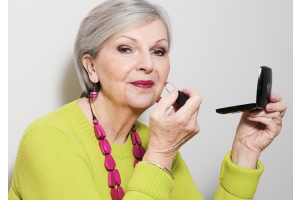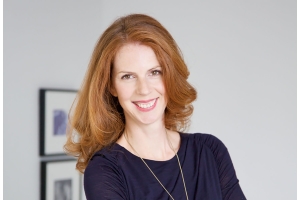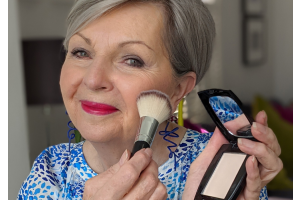
This week was the spring equinox, equal day and night. From now until June 21st the days will start to lengthen and the light will start to brighten. Which seems the perfect time for tackling chronic anxiety. I made you all a promise last week to share as many ways as I could to alleviate the symptoms of constant worry, and also to share my own coping mechanisms. So that is what I’ll now do with a couple of caveats.
The first is that I am writing about how to improve your ability to deal with constant anxiety, not grief, depression or stress. If you had a broken arm, I would not be recommending bicep curls! My suggestion is that you seek qualified specialist help if you are bereaved or suffering from a continuously low mood or a very stressful situation. The therapies here might help you, but you will also need to deal with the underlying cause.
The second caveat is that I am not a trained or qualified psychiatrist or psycho-therapist. So my intention here is to talk to you as a friend with an enquiring mind who has experienced her fair share of life’s inevitable challenges, including bouts of acute anxiety.
In my 76 years I have become more and more convinced that we humans are complex holistic systems, so there is no ‘one size fits all’ solution to anxiety. It’s more a question of finding what works best for you.
I also want to offer you practical ideas which involve starting doing some things and stopping doing others. As such I will not mention either God or any form of religious practice. If you have a strong faith you don’t need me to tell you what you already know, and I am entirely unqualified to do so. Some of these suggestions involve the mind and others the body, but, as Dr. Ellen Langer says in her book ‘The Mindful Body,’* there is no separation between the two, because each continuously impacts the other. However some therapies are more ‘mind’ based and others are more about your body, but all will benefit you as a whole person.
Attitudes and Beliefs. I was fed anxiety with my mother’s milk. My mum worried if there was nothing to worry about. I loathed the pressure, tension and stress that this induced in me and the others around her, so I vowed not to adopt the same attitudes and beliefs which ruled her life. Her thing was to believe that the world is a dangerous place. I refuse to believe that the people I care about are in mortal peril at every moment of the day. Taken to its logical conclusion, you would lock your loved ones in a room and throw away the key. I work on the principle that all is well, and that if it isn’t, I will find out about it soon enough and then (and only then) will I deal with it. Below I have recommended a podcast called The Wisdom of Anxiety which suggests that anxiety can actually be beneficial and helpful, which might be useful in reframing your beliefs and attitudes about it.
Breathing. Breath is life. When a baby is born the first thing we check is its breathing and when we breathe our last, we are finally gone. When I am anxious my breathing becomes scarily erratic, as if I am in a state of panic. Sometimes it feels as though I have a heavy weight on my chest and my lungs refuse to fully inflate. I sigh a lot in an attempt to get enough air into my body. Strange that this is all caused by my subconscious mind, but that’s what is happening, so this is what I do:
First I breathe in to the count of 5 through my nose and then I breathe out through my mouth, again counting as I do it. I can do this anywhere and anytime and within a few breaths I feel calmer. If it happens at night I do the nose breathing and then lie on my back and practise deep breathing by expanding my stomach muscles and taking long breaths in and out, whilst repeating “I am breathing in calmness, peace and tranquillity. I am breathing out fear and distress”. After a few minutes I start to tell each part of my body to relax, after which my breathing has resumed its usual rhythm and I can get back to sleep, or carry on with my day.
Calming the Mind
Anxiety is often experienced as a persistent negative thought process, so finding ways to disrupt and change this are very helpful. You could try a very simple mantra - something you repeat like “this too shall pass” or (an old Suffolk saying) “That time come, that time care for” meaning I don’t need to deal with this now, it can wait. Or you could do a visualisation in which you imagine yourself putting whatever is bothering you inside a thick black plastic sack and taking it out for the bin men to collect. As your mind wanders back to the negative thoughts you see the sack and refuse to open it again. Another trick is to strongly visualise a favourite place where you always feel (or felt) safe, happy, relaxed and calm. Close your eyes and powerfully imagine yourself there by using all your senses and know that you can always go there when you are feeling overwhelmed. I also recommend a book called “Hear Yourself - How to Find Peace in a Noisy World ” by Prem Rawat.
Meditation and Mindfulness.
My definition of both meditation and mindfulness is the conscious act of focusing on something in the here and now in order to be fully present in the moment. Both are very hard to do, so, like me, you may need some help. I have recommended a guided meditation below from the Priory which is specifically for anxiety but if you do some searching on YouTube you’ll find many more to enjoy. As to Mindfulness, I am indebted to Marilyn in a comment last week who suggested a website called ‘Hello Mindful’. Marilyn finds their daily 12 minute mindfulness sessions helpful. This is not free however, so if anyone wishes to recommend a cost-free mindfulness programme that has helped them, please do so in the comment section below.
Alternative Therapies
Before I give you some practical suggestions to relieve your anxiety, I'll just mention a few other things that I have tried in the past and which have helped me. One is hypnosis which I found very effective after I suffered a severe panic attack whilst in a large department store in London. I have also sought counselling at times of crisis which I would always recommend. The NHS offers counselling without GP referral, or you could try Better Help which can provide qualified support online, although there is a charge for this. And finally a couple of people said they have found EFT or Emotional Freedom Technique works for them. This was the method that journalist Fergal Keane was taught at The Priory to control his PTSD after witnessing genocide in Rwanda. There is a link below to an informative website.
Practical Suggestions. Things to start doing today to help you cope better with anxiety
Daily exercise. I have concentrated mostly on the mind so far, but the body matters too and exercise raises the level of positive hormones like endorphins. Just going for a walk, preferably in a green space can help you to feel better, especially if you walk mindfully by really noticing everything around you, rather than allowing negative thoughts to dominate your thinking.
Expand Your World: If your life is becoming ‘shrink-wrapped’, plan ways to expand it that will give you pleasure. Contact a friend today and fix a date to meet up. I try to always have at least one date in my diary to see a friend in the coming weeks and I go to the cinema most weekends and love the journey into other worlds that film gives me.
Join something. I have just joined a Bridge Club having wanted to learn to play for ages. I’ve had 12 hours of lessons so far and am loving it. The potential to enrich my social life is considerable and it’s great for the brain too.
Go for an aimless drive. Don’t give up on driving! As long as you are well and have the right glasses, age is not a reason to stop driving. If you have lost your confidence, just go for a pootle around to feel good behind the wheel again. If that feels beyond you, please don’t give in to it. Maybe consider having a few driving lessons to get some support and positive feedback.
Learn to say no. I have been reading a book called ‘The Top Five Regrets of the Dying’ and one of them is: “I wish I’d had the courage to live a life true to myself”. Be prepared to consider your own needs and be less open to the demands of others.
Have a specific ‘worry’ session every day. Choose a time and set a timer for five minutes. Keep a ‘worry journal’ to record your daily concerns. Check back regularly to see which worries have dissipated and which worries are constant. After five minutes put your worries in a drawer and forget them until the same time tomorrow.
Ask: Can I Change or Control This? If the answer is ‘No’ then the anxiety is entirely futile. Tactics might include limiting exposure to the news and including the worry in your daily worry journal. You really don’t have to bear the weight of the world on your shoulders.
Gratitude Lists. I reflect back at the end of every day in order to recall the happy bits. And just having my gloriously comfortable bed to sink into every night is a reason to celebrate.
Get Your Affairs in Order. Plan and prepare for your own death and then get on with the rest of your life. I have all the ‘sadmin’ ready for my daughters in a pink box file and have also filled in an exercise book with instructions for ‘What to do when I die.’
And finally - know that you are not alone and that anxiety is an entirely normal response to all the challenges and complexities of the modern world; it’s how you manage it that matters. Many of you, like me, have been blessed with longer lives than our parents. A glorious bonus of ‘extra time’ on the pitch which we can either dribble away by going round in circles of worry and anxiety, or use to score some joyful extra goals to enrich the life that we have left. Your choice.
I hope you find my suggestions useful and that you enjoy some of the resources I have suggested below. Please leave a comment and, if appropriate, references to anything that has worked for you in dealing with worry or anxiety.
References:
Video Podcast: Ellen Langer: https://www.youtube.com/watch?v=8Y-kgEN0oJE Insights into the ways that our thoughts impact our bodies.
Podcast: The Wisdom of Anxiety: The Wisdom of Anxiety with Dr. Tracy Dennis-Tiwary - A Bit of Optimism - Omny.fm Exploring why anxiety can be life saving and even life enhancing.
Book: Hear Yourself: How to Find Peace in a Noisy World by Prem Rawat. Not a ‘self-help’ book but very thought provoking.
Book: You Are Not Your Thoughts by Frances Trussell. Someone recommended last week - I have not read this yet.
Video: 9 minute Guided Meditation to relieve anxiety from the Priory https://www.youtube.com/watch?v=pU80BEm43JM Short but very sweet - nice relaxing voice.
Podcast: Everything you need to know about Sleep: Dr Michael Mosley in conversation with Professor Russell Foster, Director of the Sleep and Circadian Neuroscience Institute at the University of Oxford and one of the world’s leading researchers on what makes our body clocks tick. https://www.bbc.co.uk/sounds/play/m001trnj
Book: The Top Five Regrets of the Dying: Bronnie Ware Interesting insights which might help you to get some of your anxieties into a better perspective.
All about EFT: https://www.healthline.com/health/eft-tapping#research Useful information you may want to explore.
End of life planners are about £4.95 on Amazon. Just search: Exercise book: ‘What to do when I die’.
Tricia x
Watch Our Latest Video...
Makeover for Women With Sparse Eyebrows
Sally shows us a full makeover on Bernadette, focusing on how to create the illusion of fuller brows using our Bring Back Brow Shape...
Upcoming Events:
Friday 5th April


Film Club: American Fiction
Available on Amazon Prime
Watch the film beforehand and join us for a group discussion!
Day: Friday 5th April 2024
Time: 4 pm
Link: https://us02web.zoom.us/j/86109288705?pwd=TUgzQW5IK0VnUGI2MGdtb0FQN3hxZz09
Meeting ID (if needed): 861 0928 8705
Password (if needed): LOOKFAB














